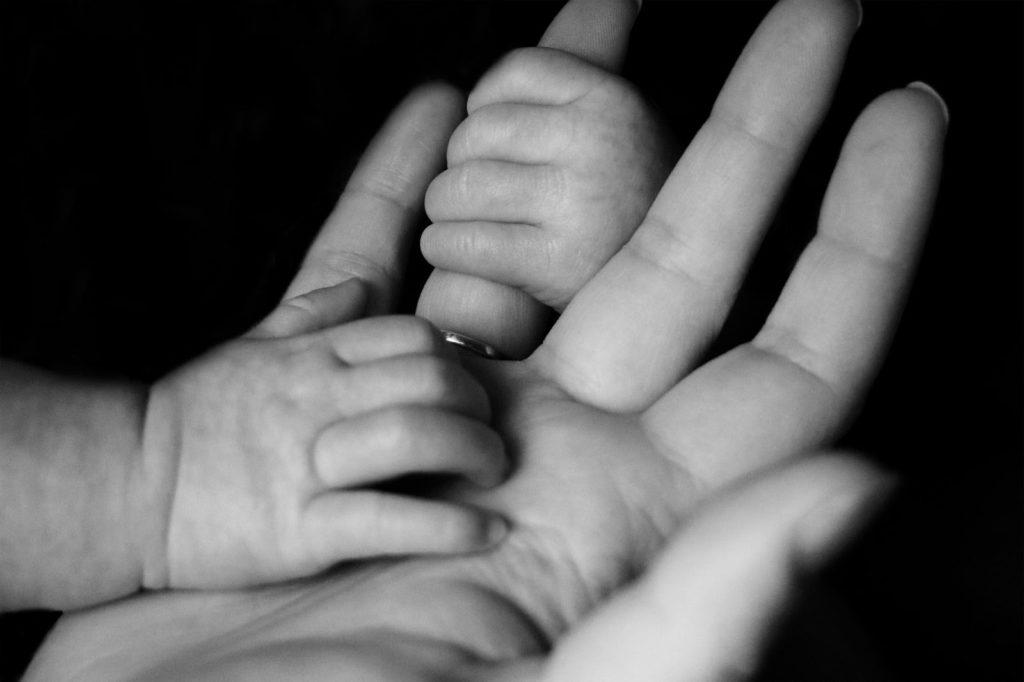A baby represents a new and often challenging time in the lives of parents. Whether it’s the first time around or a repeated experience, each new pregnancy and subsequent baby arrives with a fresh set of highs and lows.
According to SANE Australia, up to one in five new Mums and one in 10 new Dads experience perinatal anxiety or depression. There are many reasons why parents may develop mental health illnesses during or after pregnancy. Not only are there biological and physical changes to consider, but psychological and social issues – all coupled with sleep deprivation, changes in household responsibilities and exhaustion.
If these mental health issues continue untreated, the subsequent altered interaction between parent and child can lead to delayed emotional, cognitive and behavioural development. It has been reported that adolescent children of depressed fathers have increased rates of depression and suicidal behaviour.
With statistics like these, it’s crucial to understand the biological and sociological challenges facing new parents so we can best support them during this time.
Perinatal mental illness can occur from during pregnancy to anytime in the first 12 months and can affect both mothers and fathers.

It’s important to understand that mental illness does not only occur after the baby has been born. A common misconception is that mental illness only impacts mothers and only presents during the first few weeks following birth.
In fact, fathers too can suffer from perinatal mental illness. For both parents, perinatal mental health issues can come on from pregnancy to the end of the first year of the child’s life. Any mental health issues that arise after this time are usually treated as non-perinatal mental illness.
Perinatal depression in men doesn’t always present in the exact same way as it does in women. Symptoms more often resemble stress responses such as headaches, social withdrawal, moodiness, irritability and anger.
In women, perinatal mental illness typically tends to lean more towards anxiety or depression symptoms, including:
- Panic attacks
- Persistent, generalised worry
- Abrupt mood swings
- Feeling constantly sad, low, or crying for no reason
- Being nervous, on edge, or panicky
- Lacking energy
- Having thoughts of harming your baby
For a full list, see PANDA.ORG
Poverty and social isolation are risk factors.
The material deprivation and stress that can accompany lower income families is a risk factor for perinatal mental illness. Single-parent families are at risk not only because of potential economic hardship, but also because social isolation is an additional risk factor.
Barriers for reaching out may relate to time or perceived financial burdens of getting help (paying a GP, psychologist, medication etc).
The myth of the “perfect parent” leads to many suffering in silence.
A 2017 US study found that one in five women with postpartum mood disorders did not disclose their symptoms to healthcare providers.
For many parents, mental illness still comes with a stigma of shame or scepticism surrounding a diagnosis. Of course this is not the case, but for some, mental health is still regarded as a failure or a sign of weakness. Parents may question their competency as a parent or love for their child.
In Australia especially, the archetypal Aussie Battler “should” just get on with it and be happy with what they have.
It goes without saying that any mental health issue is no different to any other illness or disorder. It is not a sign of failure,. yet, many suffer in silence. The perceived pressure to be the ‘perfect parent’ often impacts a parent’s ability to reach out and ask for help.
Supporting expectant and new parents

There is much that we can do to support new parents. Ensuring parents have plenty of time and a safe space to discuss mental illness with their midwives, maternal health nurses and GPs is a great starting point. Pre-emptive and non-judgemental conversations with both parents early in pregnancy about perinatal mental illness are also important as a way to plant the seed of seeking help before any issues arise.
Early diagnosis, intervention and management are arguably the most important steps in managing perinatal mental illness. Treatment often includes therapy with a counsellor, psychologist or psychiatrist. Medications which are safe to use in breastfeeding or pregnancy may also be prescribed.
The onus is often on parents to share their symptoms, which can be overwhelming. Many new mums and dads subsequently find it difficult to admit that they are struggling. We therefore need to ensure our healthcare providers know how to effectively and sensitively interview for mental health concerns.
Parenting classes can be particularly beneficial for parents during the infant stage of maternal and paternal depression. They offer a great opportunity for new parents to learn positive and practical parenting skills to deal with the challenges of a new baby. Classes Clinicians are encouraged to educate new parents about the classes on offer during home visits.
Community help lines are also shown to be helpful and so parents should be familiar with, and have access to, these networks. Similarly, parents with strong, supportive social networks report better outcomes when dealing with perinatal mental illness.
Finally, paying attention and offering a helping hand can make all of the difference. If you have a new or expectant parent in your life who you think may be struggling, pay attention to their mood and character. Have you noticed anything out of the ordinary that concerns you? Ask how they are feeling in themselves and offer a helping hand while they nap or visit their GP.
It’s not up to you to solve their mental health illness, but a strong support network goes a long way. Just being there for them may make all of the difference.
Do you need to talk or connect with someone?
SANE provides resources for people living with complex mental health issues.
PANDA is a free, national helpline service offering support for new and expecting mums and dads struggling with becoming a parent.



